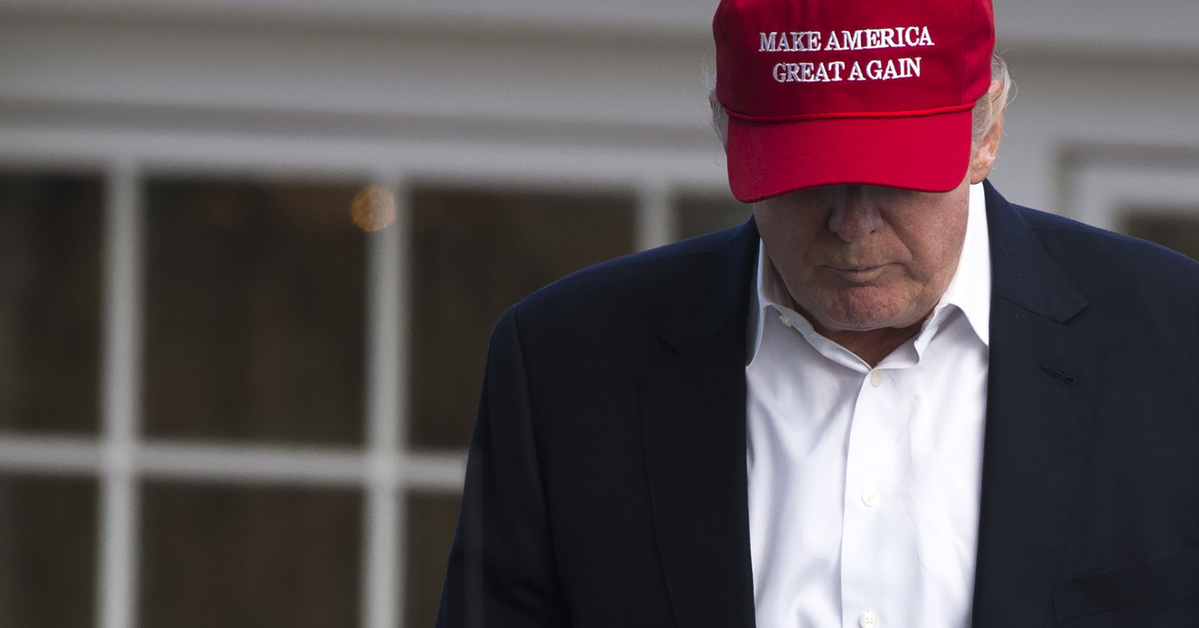
President Donald Trump‘s unmatched predilection for presidential golf outings also directly lines his family’s pockets. Now, at least one state attorney general has accused the 45th president of violating the U.S. Constitution over his excessive use of the links.
Government transparency organization Property of the People recently obtained Secret Service documents by way of the Freedom of Information Act (FOIA) which detail the agency’s spending at several Trump-owned golf resorts during the first six months of 2017.
From January through June of Trump’s first year in office, the Secret Service spent just over $254,000 at five separate Trump properties: the Trump International Hotels in New York and Las Vegas and the three Trump National Golf Clubs located in New York and New Jersey.
The lion’s share of those publicly-financed outings–and the overwhelming majority of the public’s money spent–occurred at the president’s palatial golf courses–identified via the umbrella term: “Trump National Golf Club.”
In sum, the Secret Service made 40 different transactions at Trump’s various golf-oriented properties. A single day trip in early April 2017 brought the Trump family some $28,000 in spending care of U.S. taxpayers. Another golf outing on a single day in late May of that year brought the Trump family just shy of $30,000 in additional funds.
On average, Trump personally raked in some $2,000-per-day by effectively forcing the American public to pay him to play golf.
And the news did not sit well with the president’s critics.
“The domestic #EmolumentsClause was written to prevent the president from shaking down the US government,” tweeted Maryland Attorney General Brian Frosh. “$28,800 in one day for the Secret Service is stunning, greedy, arrogant and violative of the Constitution.”
Frosh’s words don’t simply amount to rhetoric either.
In 2017, Frosh and his counterpart in the District of Columbia brought a lawsuit against the 45th president over his alleged violation of the two constitutionally-delineated Emoluments Clauses due to Trump’s continued investment in his D.C.-based hotel.
“Unlike previous presidents, President Trump has refused to separate himself from his businesses and [D.C. Attorney General Karl A. Racine] alleges that he continues to accept money from foreign and domestic governments through transactions at the Trump International Hotel here in the District,” a press release issued at the time noted. “The Framers designed these anti-corruption laws to ensure Americans never have to wonder whether the president is working on our behalf or in his personal financial interest.”
A brief refresher: the Emoluments Clauses refer to two distinct sections of the U.S. Constitution: (1) the Title of Nobility Clause located at Article I, Section 9, Clause 8; and the Presidential Emoluments Clause located at Article II, Section 1, Clause 7.
With their power combined, the clauses stand for and enshrine the notion that U.S. presidents cannot make substantial profits from either foreign or domestic sources during their time in office if those profits are made as a direct or indirect result of their being president.
Frosh and Racine have described the clauses as “our nation’s original anti-corruption laws.”
Law&Crime previously reported on the resurrection of that once-dormant lawsuit. On October 15, the U.S. Court of Appeals for the Fourth Circuit agreed to rehear the case in full after a three-judge panel initially dismissed the Frosh and Racine lawsuit. Oral arguments are scheduled in that case for December 12.
Exactly one week later, the U.S. District Court for the District of Columbia scheduled oral arguments for a different Emoluments Clause-related lawsuit–this one brought by several members of the U.S. Senate and House of Representatives.
[image via Saul Loeb, AFP/Getty Images]